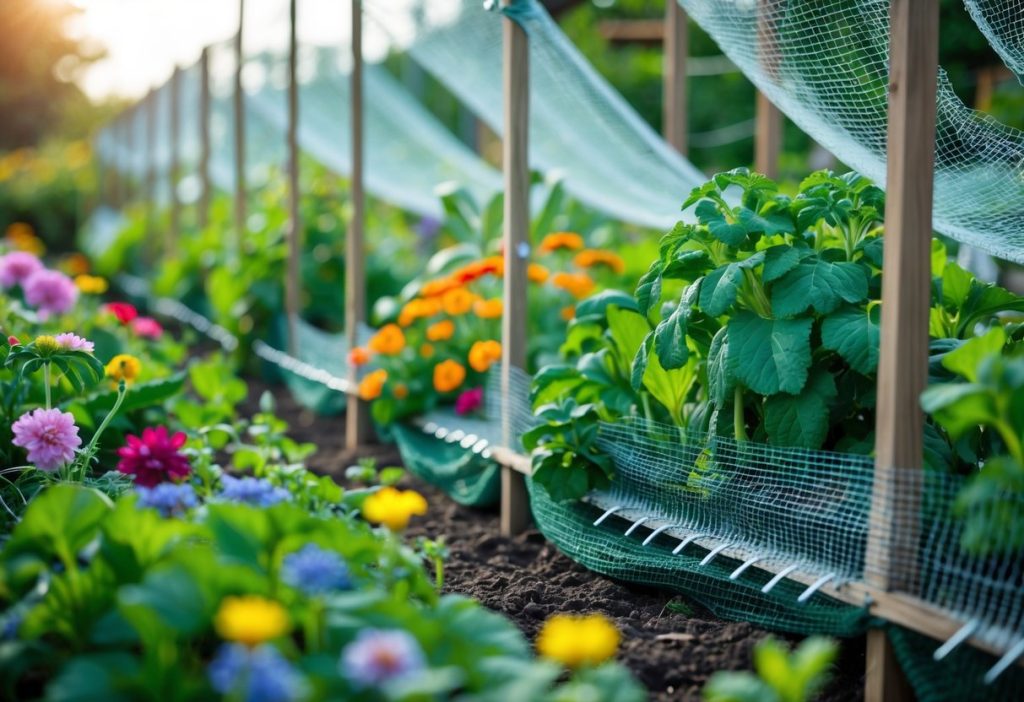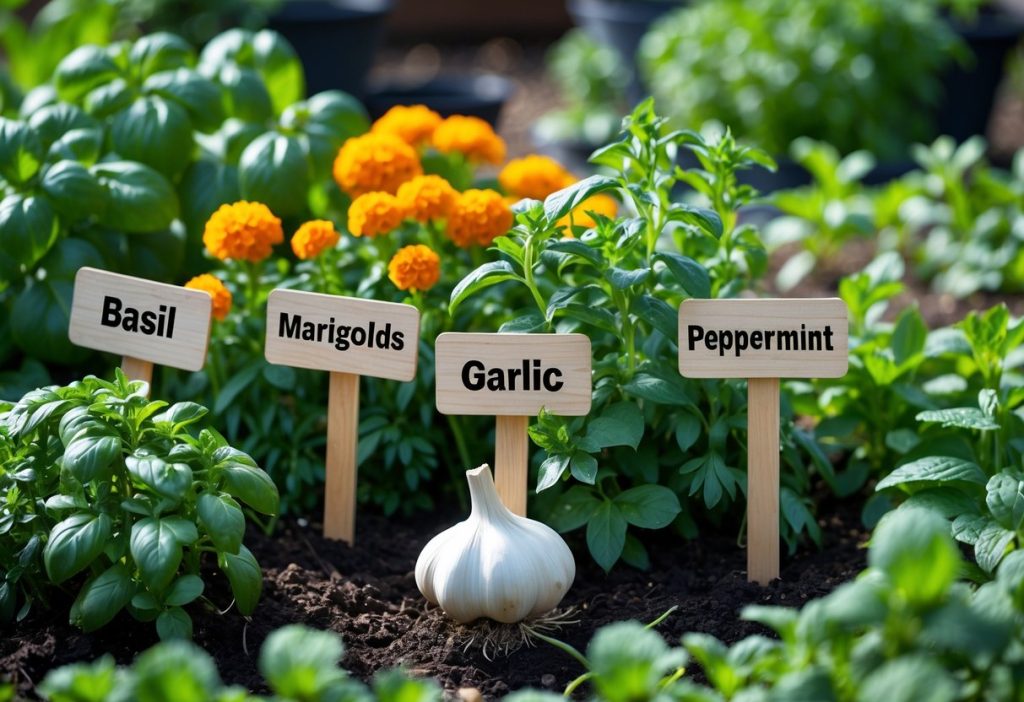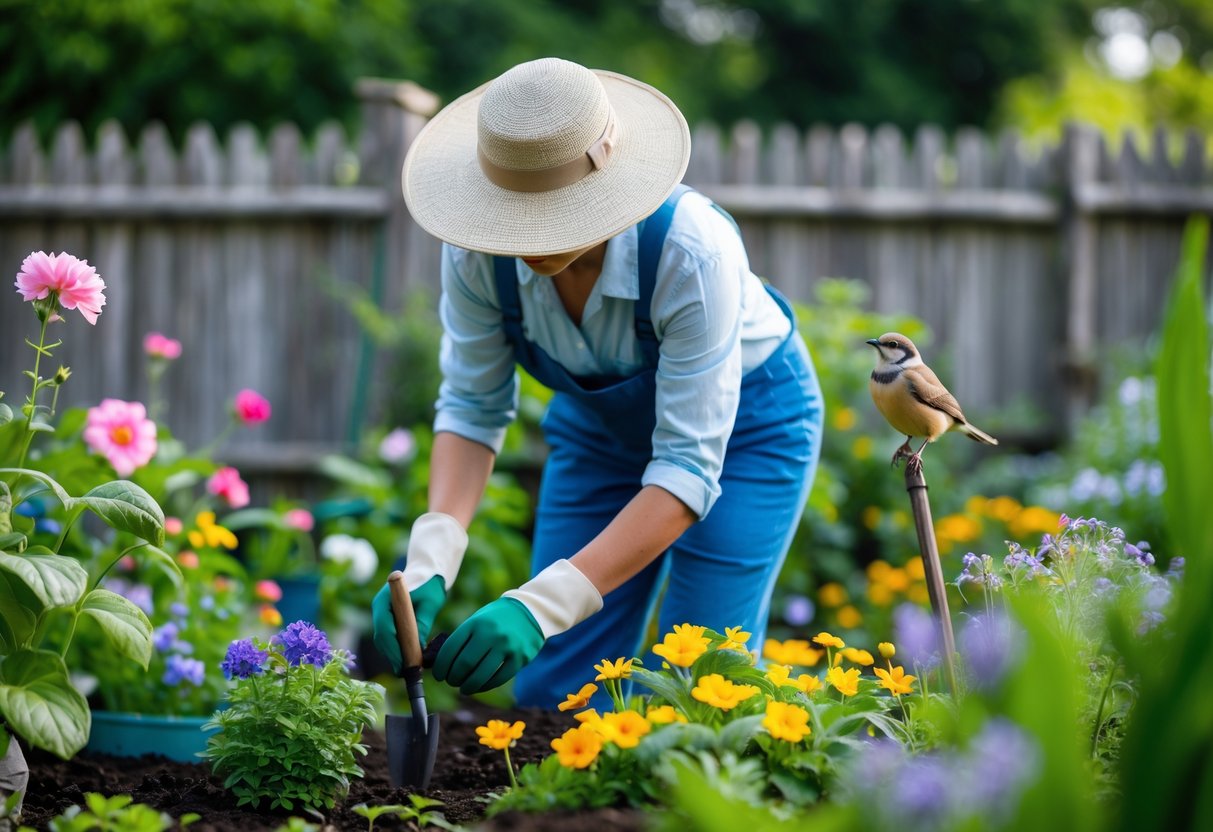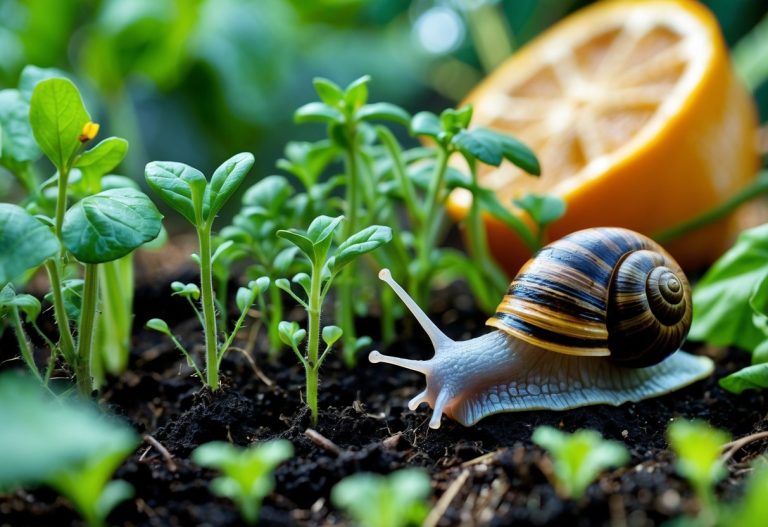How to Keep Wild Birds From Damaging Your Garden: Effective Strategies for Protection
Most gardeners love catching glimpses of wild birds flitting through their yards, but let’s be honest—sometimes these too many birds can cause headaches.
Crows, blackbirds, and starlings often snack on fruits and veggies you’ve spent months nurturing.
Larger birds might even swipe fish from your pond. Some leave droppings that stain patios or slowly ruin wooden fences and sheds.
You don’t have to harm the birds to keep your garden safe. Instead, try making certain areas less inviting to them.
If you set up bird feeders and a bird bath somewhere away from your veggies, you can tempt the birds to hang out there. They’ll get what they need, and your crops are less likely to get pecked to bits.
Key Takeaways
- You can redirect birds to other areas by providing food and water sources away from your main garden.
- Multiple deterrent methods are more effective than single approaches for protecting plants from bird damage.
- Safe bird control helps maintain garden health while keeping common garden birds in your yard.
Physical Barriers
If you want direct control, put up solid barriers around your plants. Bird netting works well when stretched over berry bushes or fruit trees, but it can snag on branches or crush delicate stems if not handled carefully.

Try building a frame around your trees first. Make it tall enough, then drape the netting from the top down to the ground. This way, you keep your harvest safe and protect the branches too.
Chicken wire boxes or cages shield strawberries and seedlings from hungry crows, pigeons, sparrows, and robins. Shape the wire into full enclosures that keep birds out.
Keep these tips in mind with barriers:
- Spikes stop birds from landing on fences, ledges, and garden structures
- Wire cages need easy access points for harvesting
- Ground coverage prevents birds from sneaking underneath barriers
- Sturdy frames keep netting taut and effective
Setting up barriers takes a bit more effort, but once you do it right, you can relax knowing your plants are protected.
Sound
Noise-making gadgets can really throw birds off, especially if the sounds are unpredictable. You want devices that change up their noises so birds don’t get used to them.
Try wind chimes and other sound tools, but make sure they mix things up in three ways:
- Frequency – how high or low the sound is
- Duration – how long each noise lasts
- Sequence – the pattern of when sounds happen
If a device makes the same sound every day, birds figure it out and ignore it. You have to keep them guessing.
Loud noisemakers that go off at random times can work wonders out in the country. If you’ve got close neighbors, though, maybe skip the big blasts and stick to subtler options.
Honestly, it’s the surprise that keeps pigeons and starlings on their toes.
Visual
You’ve got lots of visual tricks to keep birds at bay. Reflective stuff is a classic—birds hate those sudden flashes of light. Try hanging old CDs from tree branches or fence posts, and watch the sunlight do the rest.
Reflective tape is another handy tool. Cut it into strips and tie them around your garden. When the wind catches them, they shimmer and make a bit of noise, too.
Decoy predators can spook birds if you move them around every few days. Plastic owls or fake snakes look convincing at first, but birds aren’t dumb—they’ll figure it out if your decoy never budges.
Everyday things like pie pans, tin cans, or strips of foil can work as homemade reflectors. Scarecrows are still around for a reason, but you’ll need to change their clothes or shift them periodically if you want them to continue working.
Taste and Odor

Birds usually steer clear of places with strong scents or sour tastes. You can try biodegradable sprays that target these senses without harming the environment.
Some plants naturally make birds think twice because of their smell:
- Basil gives off oils that birds really can’t stand.
- Marigolds have a punchy scent that keeps birds at bay.
- Garlic and peppermint? Their odors send birds packing.
If you’re dealing with geese or ducks, chemical deterrent sprays tend to work since those birds really hate certain smells.
Learn how to control other garden pests here.


